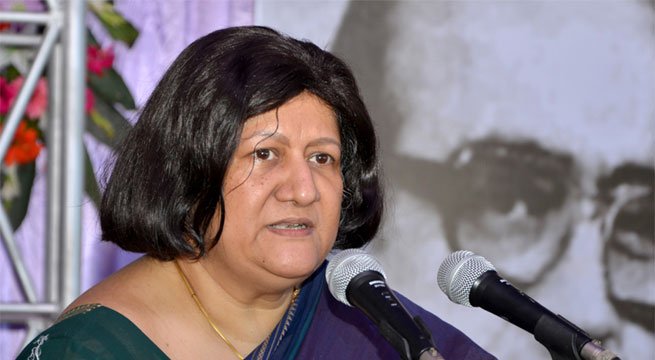
For the first time in Indian judicial history, four women head major and oldest high courts in metro cities -- Mumbai, Delhi, Kolkata and Chennai.
Indira Banerjee is the latest to join the pioneers as the chief justice of the Madras High Court. She was sworn-in as the Madras High Court chief justice on Wednesday. Banerjee succeeded SK Kaul, who was appointed as a Supreme Court judge in February.
"For long, I wanted to learn Tamil language and read some of the Tamil literature. I hope now I would get the opportunity to do that. Tamil is possibly the only language which is an official language in many foreign countries as well," Banerjee said during the swearing-in ceremony.
Justice Manjula Chellur heads Bombay High Court, while Kolkata High Court is headed by acting chief justice Nishita Nirmal Mhatre and Delhi High Court's chief justice is Justice G Rohini.
Who is Indira Banerjee?
Banerjee started her practice at Calcutta High Court after enrolling at the Bar in 1985. She was first appointed as a judge in 2002 in the Calcutta High Court. She was transferred to Delhi High Court in August 2016.
She was born in September 1957 and has 32 years of experience, including more than 15 years as a judge. She received her education in Kolkata before enrolling as an advocate in July 1985.
Women judges in higher judiciary
In the Madras High Court, there are only six women judges compared to 53 male judges. In higher judiciary, only 10.86 percent judges are women, according to Live Law. The data suggests that of the 652 judges in 24 High Courts only 69 are women.
In the Bombay High Court, there are 11 female judges against 61 male judges. At the Calcutta High Court, there are four female judges and 35 male judges. In Delhi High Court, there are nine female judges as opposed to 35 male judges.
There are eight high courts with no female judges.
There is only one woman judge in the Supreme Court, which has a working strength of 31. There are 28 judges in the apex court.
At a time when India is trying to empower more women, this figure reflects the long way the country has to go when it comes to seeing women in leadership positions. The glass ceiling in the judiciary seems only slightly cracked now and is far from being shattered.
India has not been able to pass the reservation bill for women yet, while countries like Iceland have already gotten rid of the gender-based pay gap. It is an issue that is still not openly talked about in India, forget addressing the issue of too few women leaders.

















